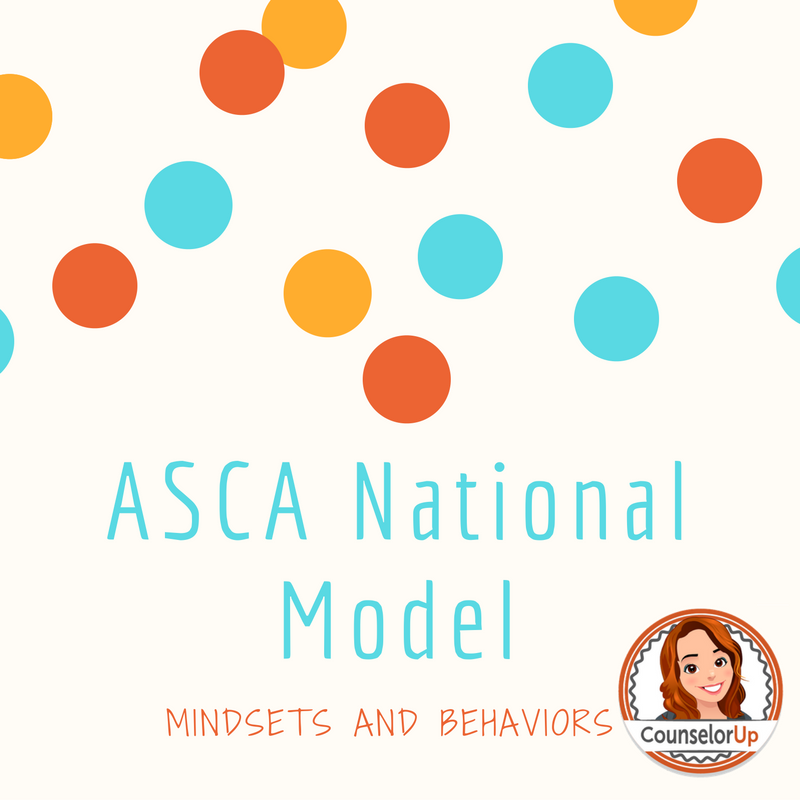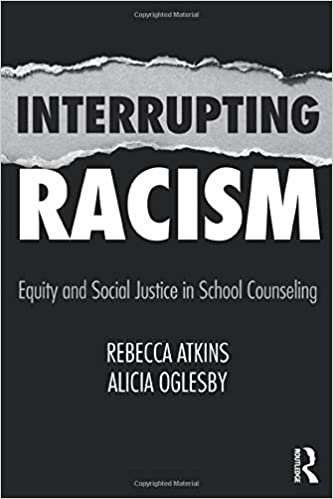Flash forward a few years and I am receiving my RAMP award. So what gives? I truly believe that using the ASCA National Model will help you to be more organized, use your time more wisely, and to work smarter and not harder. Sometimes I think that people view the ASCA National Model as forms to turn in and prove their worth to some higher up in the district or at their school. In fact, the ASCA National Model templates are tools to help you.
To dig deeper into the National Model, I highly recommend ASCA's Implementation Guide. You may have seen my post on instagram but I literally travel with this book. It is wonderful! To help, I'm working on creating a series of videos about each component of the National Model. I can't wait to share it with you!
Video Transcript
We see mindsets and behaviors in the work that we do through competencies. Competencies are specific, measurable expectations that students attain as a result of a lesson or activity. These competencies, or learning objectives, often begin with “The student will be able to” or “The Student will understand.” Let’s look at an example from the ASCA National Model Implementation Guide:
A classroom lesson on Understanding Bullying: Stopping Mean Behaviors:
- B-SS2 Create positive and supportive relationships with other students.
- B-SS8 Demonstrate advocacy skills and ability to assert self, when necessary
- Competency/Learning Objective: Students will be able to identify two or more positive peers. Students will be able to name qualities that constitute a supportive relationship.
Now let’s dive into the planning tool. As you can see there are four sections that include Mindsets, learning strategies, self-management skills and social skills. Along the right, you see three columns for the 3 domains: academic, career, and social emotional. The purpose of the planning tool is to identify which standards will be the focus of the year in classroom lessons, small group and individual counseling. Completion of the planning tool may reveal gaps within specific grade levels or domains.
Each mindset or behavior can be seen in all three domains. For instance, if we are looking at the learning strategies, the first standard is to use critical thinking skills to make informed decisions. How would that look in each of the 3 domains? In the academic domain, that might look like exploring report card grades and comments and creating a smart goal to improve grades. In the career domain, students might take an interest inventory and create a portfolio of post-secondary options based on their career choices. In the social-emotional domain, a group of students might be learning mediating skills to help others with conflict resolution.
To use the tool, your team (or counselor if you’re on your own) will look at your curriculum action plan, your group plans, and your knowledge of each grade level. You will discuss where in your school counseling program each of the standards is represented. This can include classroom, groups, and individual counseling. In order to create a true scope and sequence document, I recommend thinking about where you really focus on each standard rather than listing any time a standard might come up.
For example, if you work closely with rising third graders on academic self concept, you would consider the mindset “Self-confidence in your ability to succeed.” Because you are working specifically on academic self-concept, you would place a 3 in the column under academic. If your department works with 9th graders on their 4 year plan, you would consider the Learning Strategy standard “Identify Long and short term academic, career and social/emotional goals.” This might be a tricky one because is that in the academic domain or the career domain? Well, both. Discuss with your team (or reflect on your own) about the lessons or counseling sessions that build into this standard. Are they more academic focused (how are you going to pass your classes) or career focused (what do you want to do when you graduate and how are we going to get you there). Remember, this is a planning tool and there is no right or wrong answer!
Competencies are not addressed in the planning tool. Competencies or learning objectives guide a lesson or activity in order to support the standards. The planning tool is intended to capture the implementation of the standards within your program.
Once you have created your planning tool, take a look of the scope and sequence of your program and see if you have any gaps. The mindsets and behaviors are intended to be pK-12 and you are not “required” to cover every standard in your level. However, the planning tool can give us the big picture to see if we are missing any areas. For example, if one of your program goals for your school was related to discipline referrals, I would expect to see that you covered a variety of self-management skills. At the high school level, I would expect to see a large number of standards covered within the career domain. If you see areas that you may have missed, discuss with your team how you can support additional standards within your program. And that’s it for Mindsets and Behaviors Planning Tool. Thanks for joining us. If you have any questions, please let us know!









